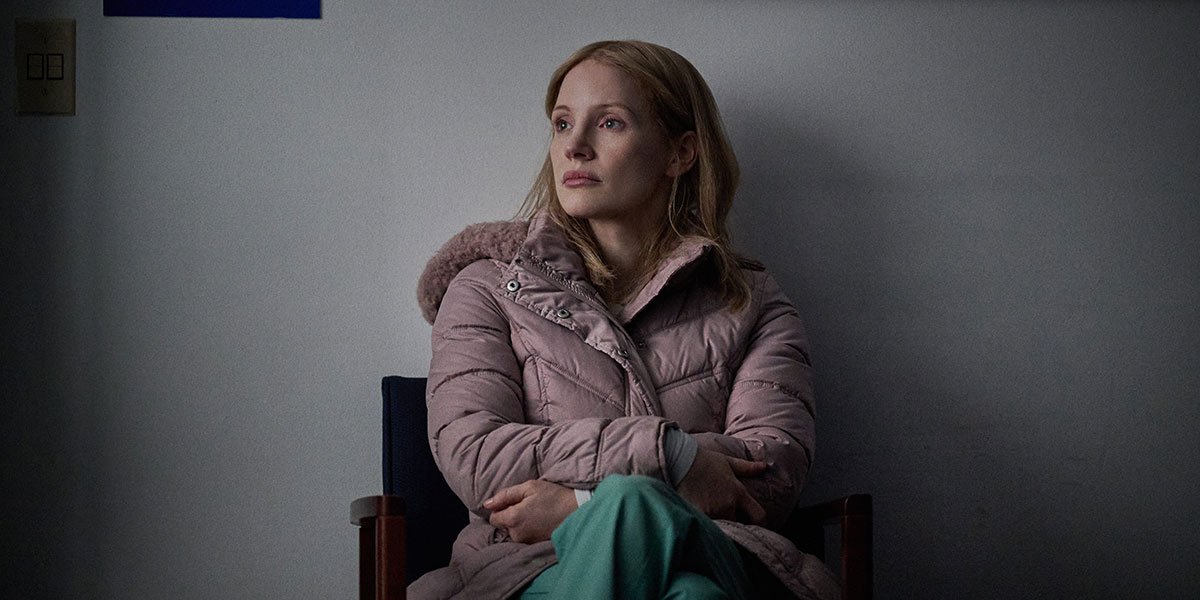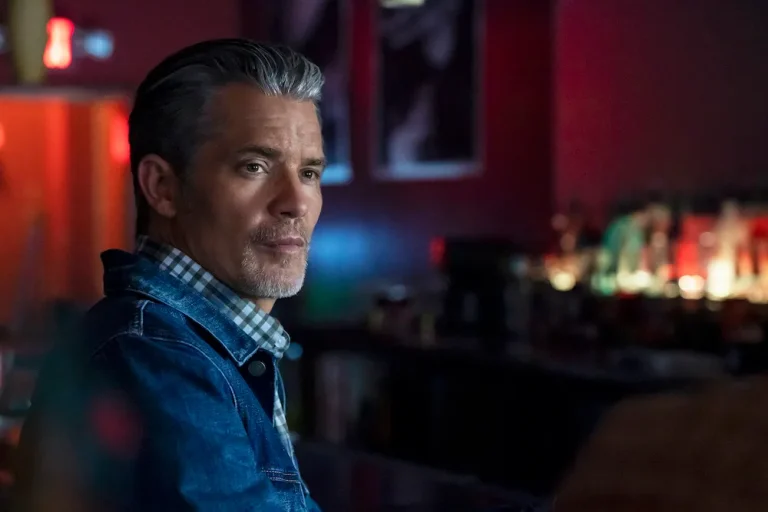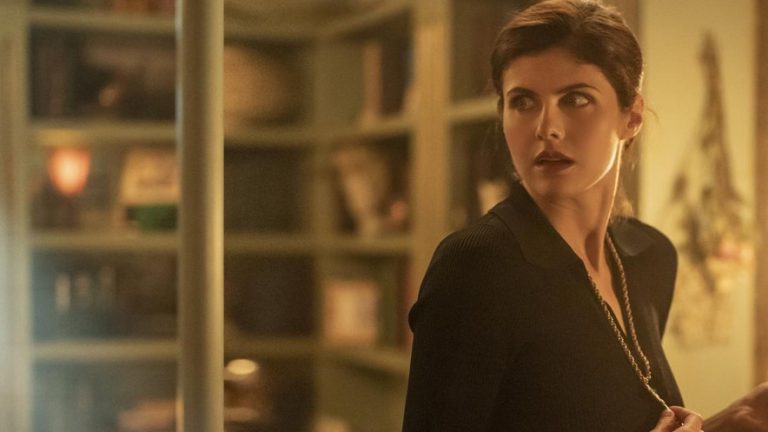The Good Nurse (2022), in its most naked essence, is the quiet collocation of Amy’s kindness and Charlie’s apathetic cruelty. There is no splashy thrill to be found here. Nor any visual brutality. Tobias Lindholm’s medical thriller, which premiered at the 47th annual Toronto International Film Festival, gets under your skin with its subtle, quiet sense of danger. The film doesn’t explore the grim reaper nurse’s side of things. Instead, we see him from the intense, terrified eyes of Amy who has just realized the true horrifying face of her new friend.
Krystie Cairns’ screenplay begins the atmospheric revelation of nurse Charlie Cullen’s cloaked coldness with a patient spazzing out and dying as Charlie watches with unfeeling eyes. Eddie Redmayne brings the very thing that our indirect view of the monstrous Charlie needed–the ability to be convincingly threatening without having an evidently violent outlet. We fundamentally see Eddie’s lack of conscience in contrast to Jessica Chastain’s Amy who is the embodiment of warmth and empathy. Amy is everything every patient and their tensed loved ones would look for in a nurse while Charlie–with a mask of kindness–is their worst nightmare.
As a single mother of two and dealing with a fatal heart complication, Amy has more than enough on her plate. Over that, she doesn’t have a choice but to keep working as there are still a few months left until she gets her health insurance. Hiding her health condition from the hospital while breaking the bureaucratic cruel rules to comfort the patients’ families; what Amy needs more than anything else is a friend. And that’s when a new coworker Charlie comes into her life. Charlie, who is in the same place in his personal life with being divorced and having two kids, treats Amy and her girls with the sincerest of love and kindness. Charlie’s sweetness makes Amy blind to the secrets he keeps hidden–even when a mysterious death of a patient brings detectives around.
Real-life serial killer Charles (Charlie) Cullen on whom the movie is based, had murdered hundreds of patients by poisoning their IVs. His motives for the murders were ambiguous, just as Charlie’s motives are in the movie. Going unnoticed by the flawed hospital system that would rather bury the truth than hold a criminal employee accountable, makes it possible for Charlie to go from one workplace to another, taking the lives of countless innocents. Amy’s relationship with Charlie–while it casts a shadow over her judgment at first–ultimately doesn’t stand in her way of suspecting him. As heartbreaking as it is for sick Amy who already has mountains of issues to deal with; she decides to put her well-being at risk and subtly use his warmth for her as a way of getting him to confess.

Redmayne does a fine job keeping Charlie as mellow as possible. His violent nature, stifled by the silent tension growing like a poison vine around the narrative, had to be as gradual as Amy’s acceptance of his reality. The cool gray tone bearing the secrets of quiet death, adds to the atmospheric fright of the storytelling. Chastain’s Amy soothes us and provides an idealistic model for how healthcare professionals are supposed to be. Not only does she go out of her way to comfort her patients; her bravery in helping the investigators when she runs the risk of losing her job is a bold critique of criminal negligence in healthcare.
In the process of strengthening and highlighting the two leads, the film falters quite a bit with the details around them–raising a few unanswered questions. Where are the doctors in the hospital? Why are the nurses completely in charge of administering medicines? However, the dangerously lousy vetting process that helped Charlie continue his crimes, is entirely believable in a system that cares more about name and money than the lives they’re supposed to protect.
The bigger picture–the gross carelessness–although not very extensively explored and attacked in The Good Nurse–is omnipresent throughout for us to pick up on and think about. Amy’s workplace being completely unaware of her deadly heart condition, medication theft going unnoticed, and Charlie messing with the IVs in the safety of zero security–all point to just that; pathological irresponsibility. The dramatization style often brushes very close against the risk of sympathizing with Charlie–and it may have happened if it wasn’t for the character of Amy constantly laying out the clear difference between good and awful. Redmayne and Chastain deserve most of the credit for making a movie that may have been just average otherwise; a really affecting watch.

![Boogie [2021] Review: Pure Visual Hip-Hop](https://79468c92.delivery.rocketcdn.me/wp-content/uploads/2021/04/boogie-768x432.jpg)




